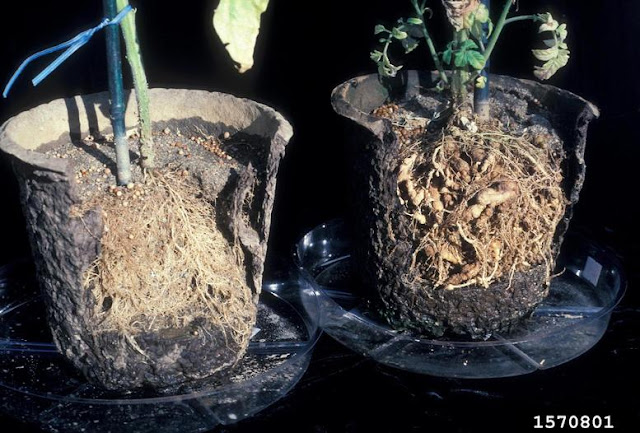- O.S. Osunlola*, B. Fawole
Root-knot nematode, Meloidogyne incognita, is a major biotic factor militating against sweet potato production. The pathogenicity of M. incognito on three sweet potato cultivars: Kayode, TIS 4400-2 and TIS 70357-OP-1-79 was investigated in a screen house experiment at the Department of Crop Protection and Environmental Biology, University of Ibadan, Ibadan, Nigeria. A vine cutting of each cultivar was planted in a 16 litre polyethylene pot containing 15 litre steam-sterilized sandy loam soil.
Three weeks after planting, the seedlings were inoculated separately at four inoculum densities: 0, 30,000, 60,000 and 90,000 eggs of M. incognito using a 3 x 4 factorial experiment replicated four times in a randomized complete block design. Data were collected on fresh shoot weight, fresh root weight, dry shoot weight, dry root weight, galling index, tuber yield, tuber quality and nematode reproduction. All data were analyzed using ANOVA (p<0.05). M. incognita significantly (p<0.05) reduced the fresh shoot weight by 16.3-23.6%, fresh root weight by 28.3-62.3%, number of tubers by 63.2-69.2% and tuber yield by 72.3-83.2%.
The gall index and the final nematode population increased with increase in inoculum density. The result showed that M incognita caused growth, yield and quality reduction in sweet potato; therefore, management of root-knot nematode should be part of sweet potato production efforts especially in areas where the nematode is endemic.
















0 comments:
Post a Comment